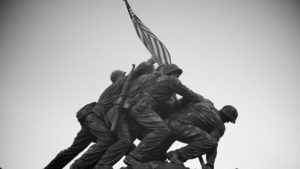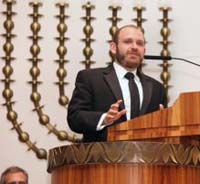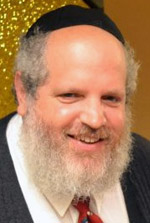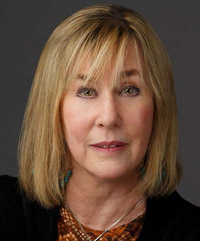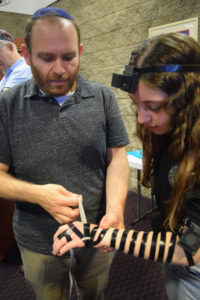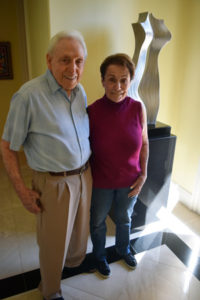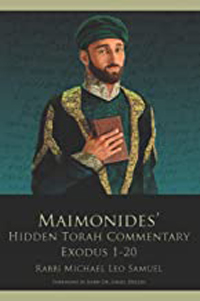Rabbi’s sermon became popular WWII lesson
Rabbi Roland B. Gittelsohn (1910-1995), assigned to the Fifth Marine Division, was the first Jewish chaplain the Marine Corps ever appointed. The American invading force at Iwo Jima included approximately 1,500 Jewish Marines. Rabbi Gittelsohn was in the thick of the fray, ministering to Marines of all faiths in the combat zone. He shared the fear, horror and despair of the fighting men, each of whom knew that each day might be his last. Roland Gittelsohn’s tireless efforts to comfort the wounded and encourage the fearful won him three service ribbons. [Michael Feldberg, Ph.D]
Rabbi’s sermon became popular WWII lesson Read More »
International, Jewish History, Jewish Religion, USA